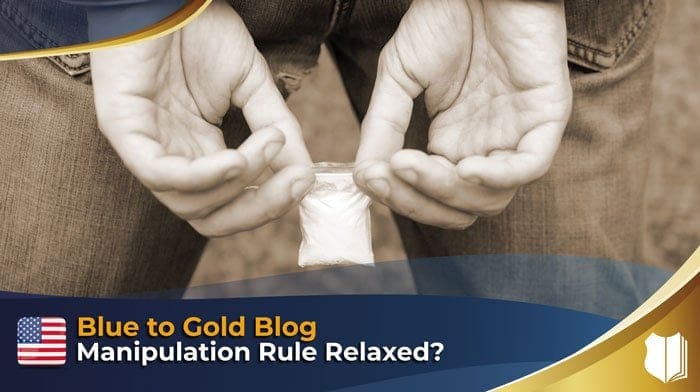This question comes from an officer in Florida. And he asks, “Have courts relaxed the manipulation rule under Terry patdowns?” What the officer’s talking about here is a case that’s called Minnesota versus Dickerson, US Supreme Court.
Basically what happened there was that officers patted down Dickerson and they felt an item in his pocket during the patdown. They described the patdown and what they’re feeling. They described it as manipulating it, feeling it, pinching it, squeezing it, to basically determine whether or not it was drugs. And they felt that it was a rock-like substance.
That was combined with all the other circumstances why the stop was made in the first place, because they thought that drug activity was occurring. The cops knew that it was what it was, potentially rock cocaine, or at least they had probable cause. Wouldn’t they want to know it? They had probable cause and they removed it. Sure enough, they’re correct.
And we’re going to the US Supreme Court. The US Supreme Court held that in that case, it was right. The cops manipulation of the item failed to satisfy the plain feel doctrine, or the plain touch doctrine, whatever you want to call it. But they did say that if while patting somebody down, an officer feels an item that is immediately apparent as contraband, evidence, fruits or instrumentalities of a crime and so forth, that they could go into the pocket and seize it.
Now, back to the original question, the officer is asking, “Have courts relaxed this rule?” And the answer is, “No.” They’re very strict on it.
A cop goes to court, and is asked, “At the time that you felt this item in the pocket, did you believe that it was a weapon or something that could hurt you?”
And then the officer says, “No, I knew at that point, that it was not something that could hurt me.”
“Okay. But did you continue to feel the item?”
“Yes.”
“And now describe how you felt that item and so forth.”
“Well, I felt that I put my hand on it, you know, I pinched it, I squeezed it. And then I realized that it was marijuana, cocaine, you know, or some kind of criminal evidence.”
At that point, the evidence is likely to be suppressed because the cop is admitting to the court that at the point of manipulation, he knows it’s not a weapon. He suspected it of being contraband, and that’s manipulation.
Now, let me just share my little best practice here. Courts will give you some wiggle room, when you are feeling an item that you’re not sure is a weapon. They will allow you to manipulate that item to make sure it’s not a weapon.
For example, there’s a case where a cop felt a rolled up bag. It was like a paper bag or something like that. It was kind of solid, and he wasn’t sure if there were razor blades in there or some kind of blunt object. So he took the bag out and was determining whether or not there was some kind of weapon in there. And he found drugs instead. The court actually upheld that, because he testified that he was still concerned about a weapon. He wasn’t sure.
But you see, in Dickerson, the cop knows it’s not a weapon and is still continuing the manipulation. So if you are unsure if it’s a weapon or not, courts will give you some leeway.
If you know it’s not a weapon, then you have to move on. Or if it’s immediately apparent to you as contraband, then you can recover it.
Now, a couple things about this. Remember; immediately apparent is only probable cause, it’s not certainty. I have patted people down, thought that there was a pipe in their pocket, pulled it out and found that it was a lighter or something else. That’s okay. I did not violate the Constitution, because I had a fair probability based off the tiny circumstances that what I was feeling was paraphernalia. Most of the time, I was right. Sometimes I was wrong.
The other thing is don’t forget the totality of the circumstances. Don’t forget that the reason why you detained this person comes into play if you believed that he was involved in narcotics. Don’t forget that if he appears to be an active drug user, or has a recent drug history, leaves a known drug house, is abnormally nervous, deceptive, evasive; that those things also contribute to probable cause. It’s not solely based on what you feel at that particular time. Does that make sense?
It’s important because a lot of cops will just talk about how the item felt, but they leave out all this other stuff. They thought they maybe saw a hand to hand transaction, it’s a high drug neighborhood, they know this guy from previous encounters, and so on. And I’m thinking to myself, that is part of the probable cause, right? So throw that in there!
Do you guys like what I’m doing? I’m doing these free YouTube videos and I do webinars every single week that are free to help train cops. That’s my mission in life. Please help me do that. Alright, until next time, my friends stay safe.











